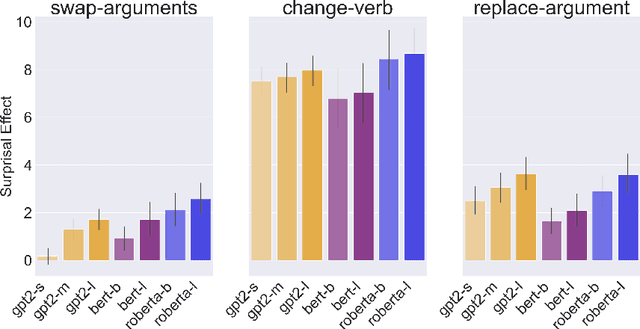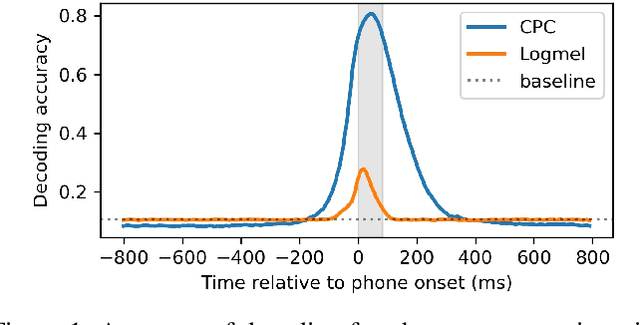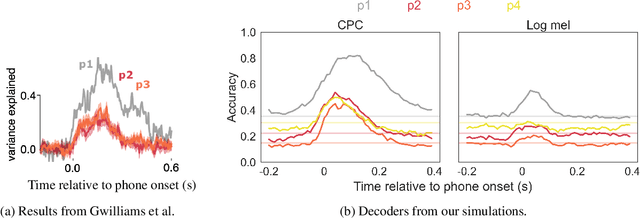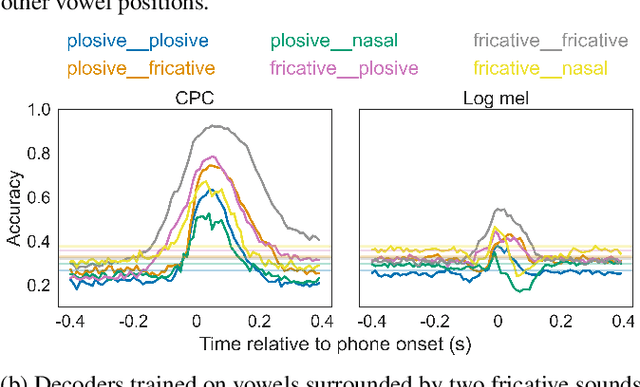Naomi Feldman
A Psycholinguistic Evaluation of Language Models' Sensitivity to Argument Roles
Oct 21, 2024



Abstract:We present a systematic evaluation of large language models' sensitivity to argument roles, i.e., who did what to whom, by replicating psycholinguistic studies on human argument role processing. In three experiments, we find that language models are able to distinguish verbs that appear in plausible and implausible contexts, where plausibility is determined through the relation between the verb and its preceding arguments. However, none of the models capture the same selective patterns that human comprehenders exhibit during real-time verb prediction. This indicates that language models' capacity to detect verb plausibility does not arise from the same mechanism that underlies human real-time sentence processing.
A predictive learning model can simulate temporal dynamics and context effects found in neural representations of continuous speech
May 13, 2024



Abstract:Speech perception involves storing and integrating sequentially presented items. Recent work in cognitive neuroscience has identified temporal and contextual characteristics in humans' neural encoding of speech that may facilitate this temporal processing. In this study, we simulated similar analyses with representations extracted from a computational model that was trained on unlabelled speech with the learning objective of predicting upcoming acoustics. Our simulations revealed temporal dynamics similar to those in brain signals, implying that these properties can arise without linguistic knowledge. Another property shared between brains and the model is that the encoding patterns of phonemes support some degree of cross-context generalization. However, we found evidence that the effectiveness of these generalizations depends on the specific contexts, which suggests that this analysis alone is insufficient to support the presence of context-invariant encoding.
 Add to Chrome
Add to Chrome Add to Firefox
Add to Firefox Add to Edge
Add to Edge